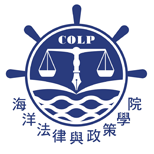Project Overview
Feasibility Assessment of the Use of Low-Sulfur Fuel (<0.1%) for Ships in Seven Major International Commercial Ports and Coastal Waters in Taiwan
1. Commissioning Unit
Maritime and Port Bureau, Ministry of Transportation and Communications
2. Execution Period
November 1, 2022 – December 31, 2023
3.Project Budget
NT$ 1,410,000
4. Project Overview
To reduce air pollution caused by ship burning marine fuel, which poses health risks, the International Maritime Organization (IMO), under Annex VI, Regulation 14 of the International Convention for the Prevention of Pollution from Ships (MARPOL), implemented a sulfur cap on marine fuels. Starting in 2020, ships navigating global waters are required to use fuels with a sulfur content of no more than 0.5% by weight (Taiwan adopted this policy early in 2019 for international commercial ports). In Emission Control Areas (ECAs), the sulfur content must not exceed 0.1% (referred to as the 0.1% sulfur limit policy). Countries such as China and South Korea have implemented similar sulfur limits for ships operating in their respective territorial waters.
Given the significant impact of marine fuel sulfur emissions on air quality at Taiwan's ports and coastal areas, the Ocean Affairs Council convened the 10th committee meeting on March 31, 2021, to evaluate the feasibility of adopting a 0.1% sulfur limit policy for ships operating in Taiwan's waters, similar to international standards. Following the Environmental Protection Administration's meeting on November 3, 2021, titled "Feasibility Assessment of Stricter Sulfur Content Regulations for Marine Fuels", it was recommended that Taiwan initially focus on international commercial ports as the target for the stricter sulfur regulations. The assessment would also consider appropriate implementation timelines and supporting measures. Additionally, input from government, industry, and academia would be gathered, with future plans to expand the policy to vessels operating outside the port areas (within the territorial seas) using marine fuels with a sulfur content of no more than 0.1% by weight.
